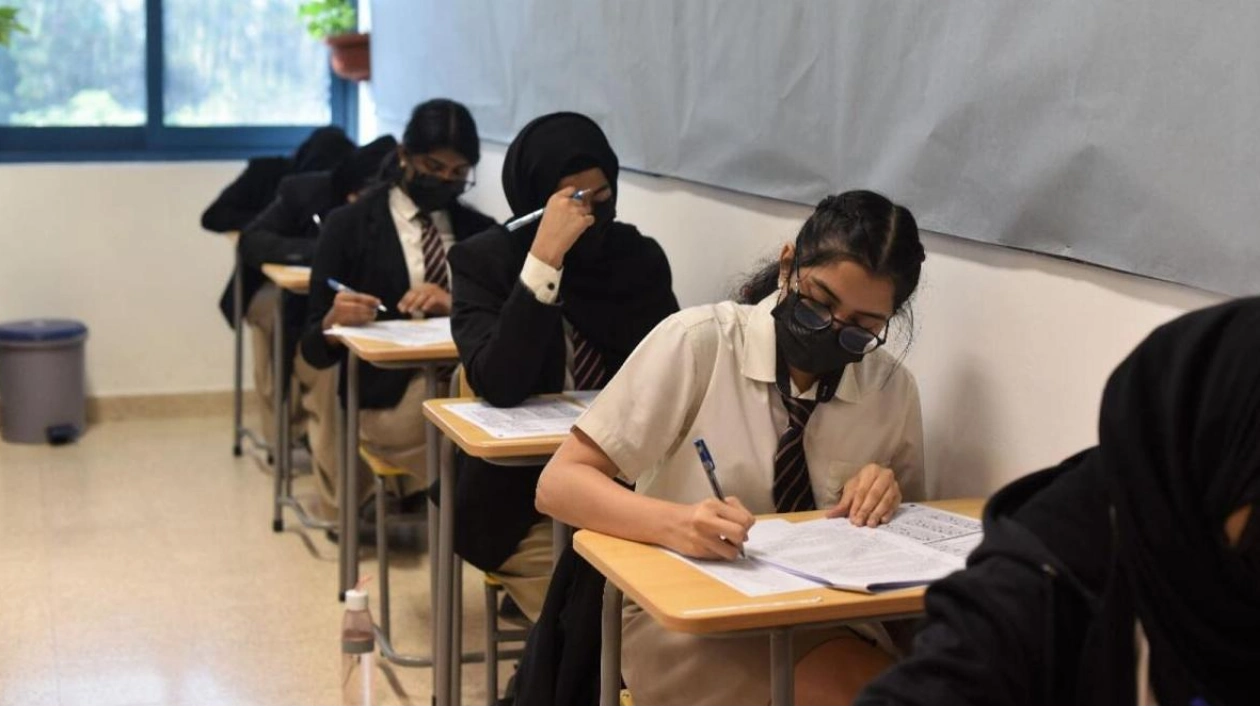Parents of private school students are advocating for a similar transformation in their schools, following the UAE's announcement of a move from conventional exams to skills-based assessments for certain public school students in the second semester. They argue that this innovative approach could greatly benefit their children by alleviating stress and fostering a more engaging educational environment.
Hessa Mohamed, a resident of Abu Dhabi and mother of two private school students in the 6th and 3rd grades, is particularly enthused about this possibility. Her children are thrilled at the thought of a semester without traditional exams. Hessa views this potential shift as a major relief for her family, stating, "The idea of a semester without exams is wonderful. It enables my children to concentrate more on learning rather than being stressed about studying for tests." She further adds, "For my younger child, the constant exam pressure can be quite restrictive. This new approach excites them about learning and encourages a more open engagement with their studies."
In Sharjah, another parent, Emily Diego, an Armenian expatriate, also endorses this change. She emphasizes her son's difficulties with exam-related anxiety, saying, "When I talked about the exam-free assessments in public schools with my son, he felt envious. He frequently experiences severe anxiety about exams, despite his intelligence. The pressure and fear of not doing well can be overpowering."
Muzna Ali Al Zyoudi, a mother of four with children in private schools, expresses her support for the new approach. "This is a good decision for students since the second term is already short," she noted. "We have been anticipating this change for a long time." Al Zyoudi hopes that this scheme will eventually be adopted by private schools, adding, "It will be a positive change for the students."
In response to the UAE's move towards skills-based evaluations, Khaleej Times consulted educational experts from private schools to gauge the implications for students and schools. Amel Dali-Bey, Deputy Head of Primary at Nord Anglia Dubai (NAS-Dubai), views this transition positively, emphasizing its potential to boost student engagement. "Transitioning to skills-based evaluations will make learning more relevant to real-world applications, promoting critical thinking and creativity crucial for future success," she explained. However, she acknowledged potential concerns, such as anxiety among students and parents about the absence of formal grades and international benchmarks.
Dali-Bey anticipates a gradual adoption of this evaluation method among private schools. "The demand for a more holistic education is driving this change," she said, referencing NAS Dubai's DICE curriculum, which integrates interdisciplinary learning. "Parental expectations and alignment with global educational trends will be pivotal in this shift," she added. Rania Hussein, Deputy Head of School at SISD Swiss International School Dubai, highlights that this shift closely aligns with practices in the International Baccalaureate (IB) programs. "The PYP and MYP focus on assessing students’ skills rather than rote memorization," Hussein noted. "This approach readies students for complex real-world challenges." She acknowledged, however, that private schools might be slow to adopt these changes unless examination boards update their criteria. "Unless these boards alter their assessment methods, schools will likely continue following traditional models," she said.
Hussein also pointed out that skills-based projects provide a richer reflection of student understanding compared to traditional exams. "Research supports that projects assess not just information retention but the ability to apply knowledge in practical contexts," she explained. While recognizing the benefits, she also noted potential challenges with the subjective nature of evaluative grading. Dr. Ayman Elnaggar, Vice Provost for Education at the University of Birmingham Dubai, sees the move towards skills-based evaluations as a step towards deeper, more engaged learning. "Focusing on practical application and real-world skills helps students develop critical thinking and problem-solving abilities," he remarked. Dr. Elnaggar believes private schools committed to progressive education may adopt this method, influenced by "the overall educational philosophy, available resources, and potential for improved student outcomes."
He acknowledged the challenges this transition may entail, including significant changes in curriculum design and ensuring consistent evaluation. "Teachers and staff will need substantial professional development to adapt effectively," he advised. "While the shift promises benefits like better workforce preparation and personalized learning, it also requires ongoing support and resources for successful implementation."






